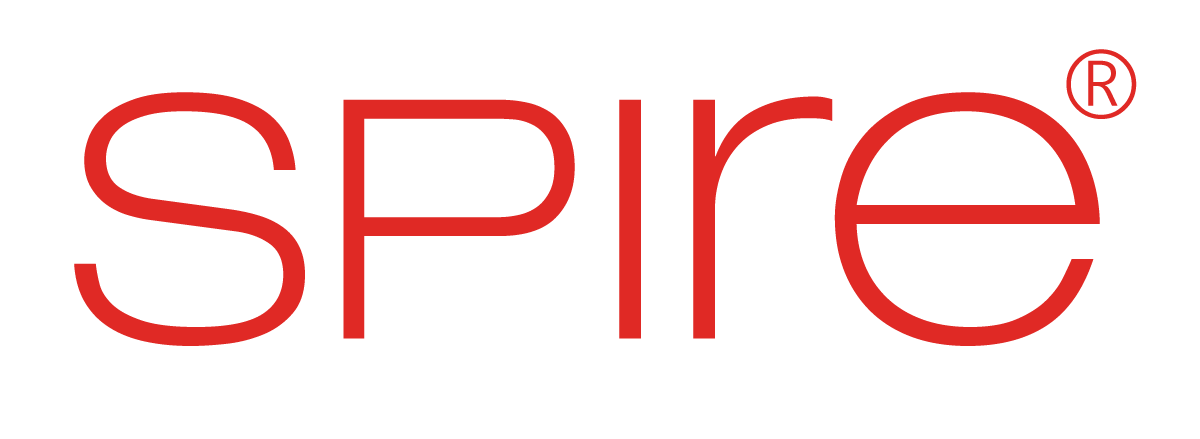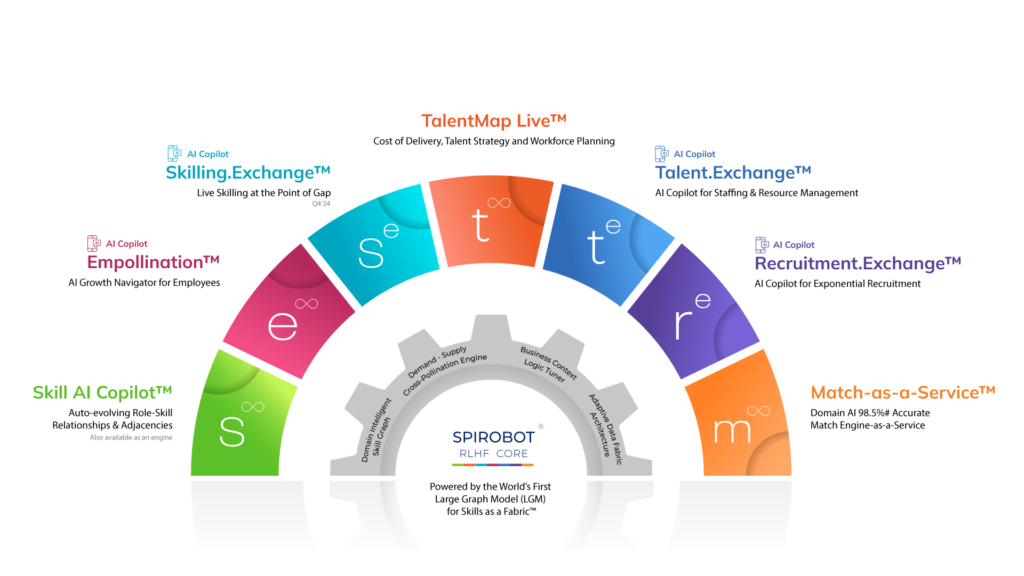The way we work is changing fast. New technology, pickier customers worldwide, and a growing knowledge of the economy mean businesses must bend backward to keep up. The secret weapon? Your people and their ability to learn new skills as quickly as things change. The best way to organize your organization and its skills is by focusing on a role-skill framework.
Technological advancements, globalization, and evolving customer demands create a dynamic work environment where agility and adaptability are paramount. At the heart of this transformation lies a crucial question for HR professionals and organizational designers: Are your traditional role-skill frameworks equipped to keep pace?
This is where well-defined role-skill frameworks come into play. They serve as the blueprint for building a skilled and adaptable workforce. Think of them as the intricate puzzle pieces that, when assembled correctly, create a complete picture of your organization’s talent needs. These frameworks outline the specific skills and competencies required for each role within your company. Effective frameworks act as a bridge between your strategic business goals and the talent needed to achieve them.
In this blog post, we will explore the limitations of traditional role-skill frameworks and introduce Spire.AI as an innovative AI-powered solution that can revolutionize how organizations manage their talent.
What is a skills framework?
A skills framework is a structured approach that defines the specific skills, knowledge, and competencies required for various organizational roles. These frameworks serve as a blueprint for talent management, outlining the expectations for each role and providing a clear pathway for employee development. Skills competency frameworks, skills assessment frameworks, skills development frameworks, and HR skills frameworks all fall under this umbrella and offer valuable tools for organizations.
What is a skills framework?
A skills framework is a structured approach that defines the specific skills, knowledge, and competencies required for various organizational roles. These frameworks serve as a blueprint for talent management, outlining the expectations for each role and providing a clear pathway for employee development. Skills competency frameworks, skills assessment frameworks, skills development frameworks, and HR skills frameworks all fall under this umbrella and offer valuable tools for organizations.
Understanding Role-Skill Frameworks and Their Significance
What are Role-Skill Frameworks?
A role-skill framework is a structured approach that defines the specific skills, knowledge, and competencies required for various organizational roles. These frameworks serve as a blueprint for talent management, outlining the expectations for each role and providing a clear pathway for employee development. Role-skill frameworks typically include:
What are Role-Skill Frameworks?
A role-skill framework is a structured approach that defines the specific skills, knowledge, and competencies required for various organizational roles.
- Skill Requirements: A list of technical and soft skills necessary to perform the job effectively.
- Job Descriptions: Detailed descriptions of the responsibilities and expectations associated with each role.
- Competency Levels: Different proficiency levels (e.g., beginner, intermediate, expert) for each skill.
- Development Pathways: Guidelines for how employees progress from one role or skill level to another.
The Significance of Role-Skill Frameworks
Role-skill frameworks play a critical role in several key areas of talent management:
- Recruitment and Selection: These frameworks help HR professionals identify and select the best candidates for each role by clearly defining the skills and competencies required.
- Training and Development: Role-skill frameworks provide a foundation for designing targeted training programs that address skill gaps and promote continuous learning.
- Performance Management: These frameworks enable more effective performance evaluations and feedback processes by setting clear expectations for each role.
- Career Pathing: Role-skill frameworks help employees understand the skills and competencies they need to develop to advance their careers within the organization.
- Strategic Workforce Planning: These frameworks provide insights into the skills available within the organization and help identify future skill requirements, enabling more strategic workforce planning.
The Significance of Role-Skill Frameworks
– Recruitment and Selection
– Training and Development
– Performance Management
– Career Pathing
– Strategic Workforce Planning
Despite their importance, traditional role-skill frameworks often need help to keep pace with the rapidly changing business environment. Let’s explore some of the challenges associated with these conventional frameworks.
The Challenges of Traditional Role-Skill Frameworks
1. Static and Outdated
Traditional role-skill frameworks are often static, manually maintained, and quickly become outdated. These frameworks typically rely on predefined job descriptions and skill sets that do not account for the dynamic nature of the modern workplace. As a result, they need to capture emerging skills and evolving job requirements, leading to skill gaps and inefficiencies within the organization.
2. Unscalable and Linear
Manual maintenance of role-skill frameworks is not only time-consuming but also unscalable. As organizations grow and the number of roles and required skills increases, manually managing and updating these frameworks becomes increasingly tricky. Additionally, traditional frameworks tend to be linear, focusing solely on specific technical skills while neglecting other critical competencies that may be crucial for the role.
3. Lack of Personalization
Every organization is unique, with its values, culture, and strategic goals. Traditional role-skill frameworks often fail to account for these nuances, offering generic solutions that do not align with the organization’s business context and vision. This lack of personalization can result in mismatches between employees and roles, ultimately affecting productivity and job satisfaction.
The Role of AI in Developing and Maintaining Role-Skill Frameworks
Artificial Intelligence (AI) is transformative in developing and maintaining modern role-skill frameworks. In contrast to traditional role-skill frameworks, AI brings a dynamic, scalable, and intelligent approach to managing these frameworks, ensuring they remain relevant and effective with evolving business needs, goals, and trajectories. Here’s how AI revolutionizes the development and maintenance of role-skill frameworks:
1. Continuous Learning and Adaptation
AI technologies can continuously learn and adapt by analyzing vast amounts of data from multiple sources, including industry trends, employee performance metrics, and market demands. This ongoing learning process allows AI to update and refine role-skill frameworks in real time, ensuring they accurately reflect the organization’s current and future needs. By capturing emerging skills and evolving job roles as they arise, AI helps organizations stay ahead of the curve and maintain a competitive edge.
2. Identifying Complex Skill Patterns
Modern job roles often require a combination of technical skills, soft skills, and behavioral traits. AI excels at identifying complex skill patterns and relationships within large datasets, which would be nearly impossible to detect manually. By understanding these intricate skill mixes, AI can provide more accurate and nuanced role definitions, enabling organizations to match employees with suitable roles better and identify potential candidates with the right skills.
3. Personalized Development Pathways
AI can create personalized development pathways for employees by analyzing their current skills, performance data, and career aspirations. This customized approach ensures that each employee receives targeted training and development opportunities tailored to their unique needs and goals. By fostering continuous growth and development, AI helps employees stay engaged and motivated, improving job satisfaction and retention rates.
4. Automating Routine Tasks
Maintaining a role-skill framework involves numerous routine tasks, such as updating job descriptions, mapping skills to roles, and tracking skill gaps. AI can automate these tasks, significantly reducing the administrative burden on HR professionals and organizational designers. This automation saves time and ensures greater accuracy and consistency in the framework. By freeing HR teams from repetitive tasks, AI allows them to focus on more strategic initiatives, such as workforce planning and employee engagement.
5. Enhancing Decision-Making with Data-Driven Insights
AI provides data-driven insights that enhance decision-making across various aspects of talent management. For instance, AI can analyze trends in employee performance and industry developments to forecast future skill requirements. These insights enable HR professionals to proactively address skill gaps and align their talent strategies with the organization’s long-term goals. Additionally, AI can help identify high-potential employees and design customized career paths to nurture their growth within the company.
6. Facilitating Strategic Workforce Planning
Strategic workforce planning involves anticipating and preparing for future talent needs based on the organization’s objectives and market conditions. AI can support this process by providing predictive analytics and scenario modeling. By simulating different business scenarios, AI helps organizations understand the potential impact on their workforce and identify the skills and roles critical for future success. This foresight allows organizations to make informed decisions about hiring, training, and development, ensuring they are well-prepared for upcoming challenges and opportunities.
7. Promoting Agility and Flexibility
Organizations must be agile and flexible in today’s fast-paced business environment to respond to changing market conditions and technological advancements. AI-powered role-skill frameworks provide the agility required to adapt to these changes quickly. By continuously updating and evolving the framework, AI ensures that organizations can swiftly realign their talent strategies with new priorities and maintain a resilient workforce capable of meeting emerging demands.
8. Ensuring Consistency and Standardization
AI helps maintain consistency and standardization across the role-skill framework, which is crucial for large organizations with diverse teams and locations. By using AI algorithms to analyze and standardize skill requirements and job descriptions, organizations can ensure uniformity in their talent management practices. This consistency is essential for multinational companies, where varying regional practices can lead to discrepancies and inefficiencies.
9. Integrating with Other Talent Systems
AI-powered role-skill frameworks can seamlessly integrate with other talent management systems, such as learning management systems (LMS), performance management systems, and recruitment platforms. This integration ensures a cohesive approach to talent management, where data flows smoothly between systems, providing a comprehensive view of the workforce. This holistic approach enables more effective talent strategies and better decision-making across the organization.
Introducing Spire.AI: The Future of Role-Skill Frameworks
Spire.AI is a cutting-edge AI-powered solution designed to address the limitations of traditional role-skill frameworks. By leveraging advanced technologies such as Large Graph Models (LGMs) and domain intelligence, Spire.AI offers an auto-evolving, scalable, and personalized framework that can transform organizations’ talent operations.
1. Auto-Evolving Domain-Intelligent LGM-Based Role-Skill Framework
At the core of Spire.AI’s solution is the auto-evolving role-skill framework curated with a domain-intelligent large graph model (LGM). This model continuously learns from vast amounts of data, identifying complex skill mixes and evolving job requirements in real-time. With over 10 million skill nodes, the LGM provides a comprehensive and up-to-date representation of the skills landscape, ensuring the framework remains relevant and accurate.
2. Multi-Dimensional Skill Analysis
Spire.AI’s LGM-based framework goes beyond traditional technical skills, incorporating a multi-dimensional analysis of competencies. This includes hard technical skills, additional complementary skills, and adjacent skills. By providing a holistic view of each role and the skills required, Spire.AI enables organizations to match employees with the right roles better and foster a more inclusive and productive work environment.
3. Scalability and Efficiency
The AI-powered nature of Spire.AI’s framework makes it highly scalable and efficient. Unlike traditional frameworks that require manual updates, Spire.AI automatically identifies and integrates new skills and job requirements, reducing the administrative burden on HR professionals and organizational designers. This scalability ensures that the framework can grow and adapt alongside the organization, providing a sustainable solution for talent management.
4. Personalization and Customization
Spire.AI understands that every organization is unique. The LGM-based framework is easily configurable for any business context, allowing organizations to tailor it to their needs and strategic goals. This level of personalization ensures that the role-skill framework aligns with the organization’s culture, values, and long-term vision, enhancing overall effectiveness and employee satisfaction.
How Spire.AI Transforms Talent Management
1. Enhanced Recruitment and Onboarding
By providing a detailed and accurate representation of the skills required for each role, Spire.AI enhances the recruitment process. HR professionals can identify the best candidates more efficiently, reducing time-to-hire and improving the quality of hires. Additionally, comprehensive skill analysis helps design more effective onboarding programs, ensuring new employees have the necessary skills and knowledge from day one.
2. Improved Employee Development and Retention
Spire.AI’s auto-evolving role-skill framework supports continuous learning and development within the organization. By identifying skill gaps and emerging trends, the framework helps HR professionals design targeted training programs that keep employees up-to-date with the latest industry developments. This focus on continuous development improves employee performance and enhances job satisfaction and retention rates.
3. Strategic Workforce Planning
With Spire.AI, organizations can take a more strategic approach to workforce planning. The AI-powered framework provides insights into future skill requirements, enabling organizations to anticipate and prepare for changes in the market. This proactive approach ensures that the organization remains competitive and can quickly adapt to new opportunities and challenges.
4. Increased Organizational Agility
In today’s fast-paced business environment, agility is critical to success. Spire.AI’s dynamic and flexible role-skill framework allows organizations to respond quickly to changes in the market, technology, and workforce dynamics. This increased agility enables organizations to stay ahead of the curve and maintain a competitive edge.
Conclusion
The future of work demands a new approach to role-skill frameworks. Traditional, manually maintained frameworks can no longer meet modern organizations’ complex and dynamic needs. AI-powered tools can address these challenges, providing an auto-evolving, scalable, and personalized framework that can transform talent management.
For HR professionals and organizational designers, adopting Spire.AI means embracing a future where skills are constantly evolving and the organization is equipped to adapt and thrive in an ever-changing business landscape. By leveraging the power of AI, Spire.AI enables organizations to build a resilient, agile, and future-ready workforce.
As we move towards this future, the role of HR professionals and organizational designers will be more critical than ever. With the right tools and frameworks, such as Spire.AI, they can ensure that their organizations are prepared for the challenges ahead and poised to seize new opportunities and drive sustainable growth. The time to upgrade your role-skill framework is now, and Spire.AI is here to help you lead the way.






